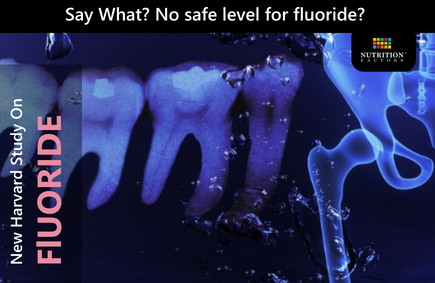In recent years, discussions about water fluoridation and its potential impact on health have gained momentum. The latest addition to this discourse is a groundbreaking study from Harvard University that challenges conventional wisdom. The research suggests that fluoride consumption might not be safe, opening up a new chapter in the ongoing debate.
Harvard’s Unprecedented Study
Harvard researchers delved into the extensive evidence surrounding fluoride exposure and its effects on cognitive development. The study aimed to reevaluate established safety levels, sparking conversations about the widespread practice of water fluoridation. Contrary to previous assumptions, the findings suggest that even low levels of fluoride exposure may have detrimental consequences, especially in the context of cognitive function.
The Safety Question
Fluoride has been added to public water supplies for decades to promote dental health. However, as concerns grow, the safety of this practice has come under scrutiny. The Harvard research adds fuel to the fire, questioning the long-held belief that there is a universally safe threshold for fluoride intake. In addition, all one needs to do is read the warning label on the toothpaste box.
Cognitive Impact:
- The study indicates potential cognitive implications, with even low fluoride exposure levels showing a correlation with adverse effects on cognitive development.
Reconsidering Fluoridation Practices:
- The findings prompt a reevaluation of water fluoridation practices, urging communities and policymakers to reconsider established norms.
Implications for Public Health:
- The research raises important questions about the potential impact of fluoride exposure on public health, particularly in vulnerable populations.
Navigating the Controversy
As the debate surrounding fluoride safety intensifies, it becomes crucial for individuals to stay informed and make decisions that align with their health priorities. While public health measures often aim to benefit communities, the individual considerations arising from the Harvard study warrant careful reflection.
Key Takeaways from the Harvard Study
Harvard’s groundbreaking research adds a new layer to the ongoing conversation about fluoride safety. The implications are profound, urging us to reevaluate established practices and consider the potential impact on cognitive health. A few questions: Is it time for a water filter to remove fluoride from our tap and shower water? Will you be switching to a non-fluoridated toothpaste? How does fluoride affect our personal, mental, and physical health? The choice is always yours; we give you a few things to consider.
Is Fluoridated Water Safe? | News | Harvard T.H. Chan School of Public Health




